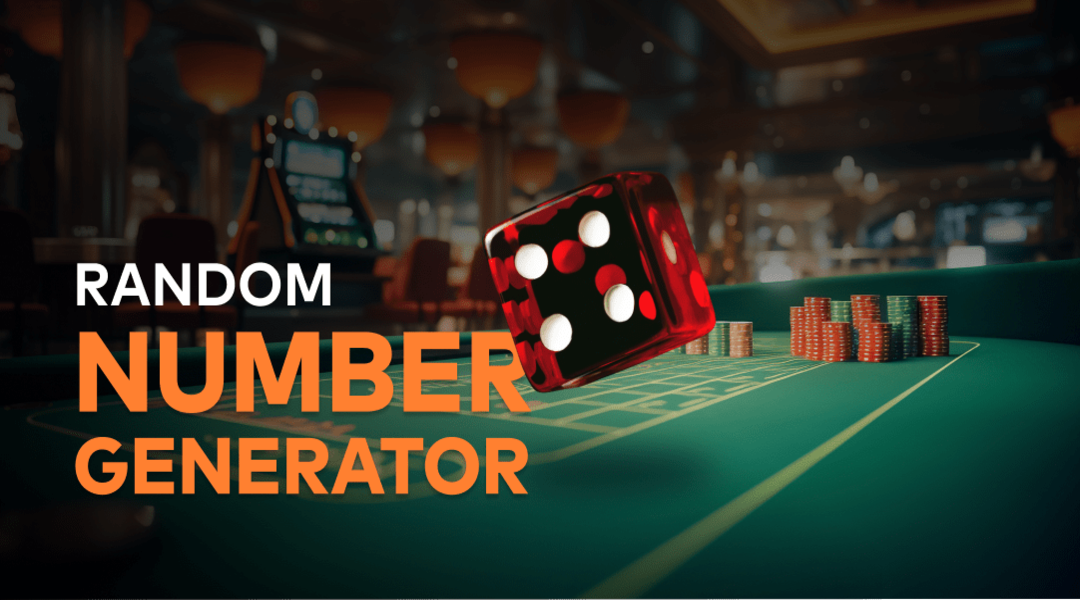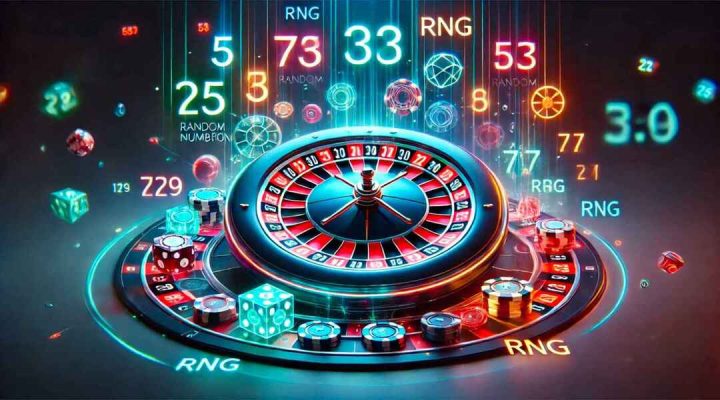Random Number Generators: Myths & Importance

Random Number Generators (RNGs) form the backbone of fairness and unpredictability in online casinos. Without RNG technology, trust in online gambling platforms would be virtually impossible to establish. But how exactly does this system work, and why is it so crucial? In this comprehensive review, we dive into the mechanics of random number generation, explore its significance for online casino games, and address some common misconceptions surrounding its reliability.
What is a Random Number Generator (RNG)?
A Random Number Generator is a software-based system designed to produce sequences of numbers that lack any discernible pattern. In online casinos, RNGs ensure that every spin, shuffle, or dice roll delivers unpredictable outcomes, replicating the randomness found in traditional brick-and-mortar gambling.
Unlike physical devices such as dice or roulette wheels, an online RNG relies on complex algorithms to generate results. Specifically, a randomization algorithm calculates a sequence of numbers at lightning-fast speeds, ensuring fair and unbiased game outcomes. While the RNG doesn’t create “true” randomness in a physical sense, the output is sufficiently unpredictable and practically impossible to manipulate.
How Do RNGs Work in Online Casino Games?
Online casinos employ two main types of RNG systems:
- Pseudo-Random Number Generators (PRNGs): These systems rely on initial values (known as a seed) and mathematical formulas to generate sequences of random numbers. PRNGs are highly efficient for casino games because they don’t require external input, making them faster and easier to implement.
- True Random Number Generators (TRNGs): TRNGs derive randomness from unpredictable physical processes, such as atmospheric noise or thermal fluctuations. While more “true” in their randomness, TRNGs are less commonly used in online casinos due to their complexity.
When a player initiates a spin in a slot game or deals a card in an online blackjack session, the RNG generates a number in a fraction of a second. For example:
- In slot machines, the generated number determines which symbols land on the reels.
- In card games, RNGs decide the shuffle sequence and which cards are dealt.
The results are always independent, meaning that previous outcomes do not influence future ones. This ensures fairness and eliminates patterns or predictability.
Why RNGs Are Essential for Fairness and Trust

Online gambling relies on RNGs to simulate the randomness found in physical casino games. Without this technology, players would have little assurance that the games are fair. RNGs address two critical aspects of online gambling:
1. Fairness
Regulated online casinos implement RNG systems that undergo frequent testing and auditing by independent third parties. These organizations, such as eCOGRA and iTech Labs, verify that the RNGs produce truly random outcomes.
For example, an audited slot machine game with a 96% Return to Player (RTP) will pay out approximately $96 for every $100 wagered over a long period. RNG technology ensures the payouts remain consistent with the RTP percentage without manipulation.
2. Transparency and Trust
Most reputable online casinos make their RNG certifications available for players to view. These certifications demonstrate that the platform complies with regulatory standards and guarantees unbiased gameplay.
Example: Slot Machines and RNGs
Consider a slot game with 5 reels and 3 rows, containing 10 symbols per reel. The RNG selects a random number to determine which of the 10 symbols appears on each reel. The total number of possible outcomes can be calculated as follows:
Here, the RNG ensures that every spin has an equal 1-in-100,000 chance of landing on any specific outcome. This level of unpredictability mirrors the randomness of physical slot machines.
Debunking Myths About RNGs
Despite the rigorous testing of RNGs, some players remain skeptical of their reliability. Here are two common misconceptions:
Myth 1: Online Casinos Can Manipulate RNGs
Reputable online casinos operate under strict regulations, making it nearly impossible to manipulate RNG outcomes. Certified casinos must comply with regular audits and fairness checks. Any tampering with the randomization algorithm would lead to the platform losing its license.
Myth 2: Patterns Can Be Predicted
RNGs produce independent results that do not follow patterns. Even if a player experiences a winning streak or losing streak, it is purely coincidental. The random nature of RNG ensures that previous outcomes have no bearing on future ones.
Real-World Examples of RNG Applications
RNGs are used across a variety of online casino games:
- Slot Machines: Each spin is determined by RNG, ensuring every result is random and independent.
- Online Roulette: The RNG generates a number between 0 and 36 (or 0 and 37 for American roulette) to simulate the ball landing on a random pocket.
- Card Games (Blackjack, Baccarat): RNGs shuffle virtual decks to determine the cards dealt, replicating physical shuffling in real-life casinos.
- Live Dealer Games: Although live dealer games use real cards and wheels, RNGs sometimes assist with elements like bonus features or side bets.
Ensuring RNG Fairness: Testing and Certification
The fairness of RNGs depends on frequent audits and certifications by independent organizations. Leading testing agencies include:
- eCOGRA: A well-known organization that ensures RNGs meet fairness and safety standards.
- GLI (Gaming Laboratories International): Tests software and RNGs to confirm compliance with global regulations.
- iTech Labs: An independent testing lab that evaluates RNG performance and fairness.
These agencies use advanced tools and statistical methods to confirm that RNG outputs are unpredictable and unbiased. Players can often find RNG certifications displayed in the casino’s footer or terms of service page.
Final Thoughts: The Importance of RNG in Online Casinos
Random Number Generators are the cornerstone of fair and transparent gameplay in online casinos. By utilizing sophisticated randomization algorithms, RNGs replicate the unpredictability of traditional gambling, ensuring that outcomes remain impartial and independent.
For players, understanding how RNGs work offers peace of mind and builds confidence in online gaming platforms. Whether you’re spinning a slot reel or playing a hand of virtual blackjack, the RNG guarantees that the experience is as fair as it is exciting.
Ultimately, as long as players choose licensed and regulated casinos, they can trust that RNG technology delivers a secure and trustworthy gaming environment.